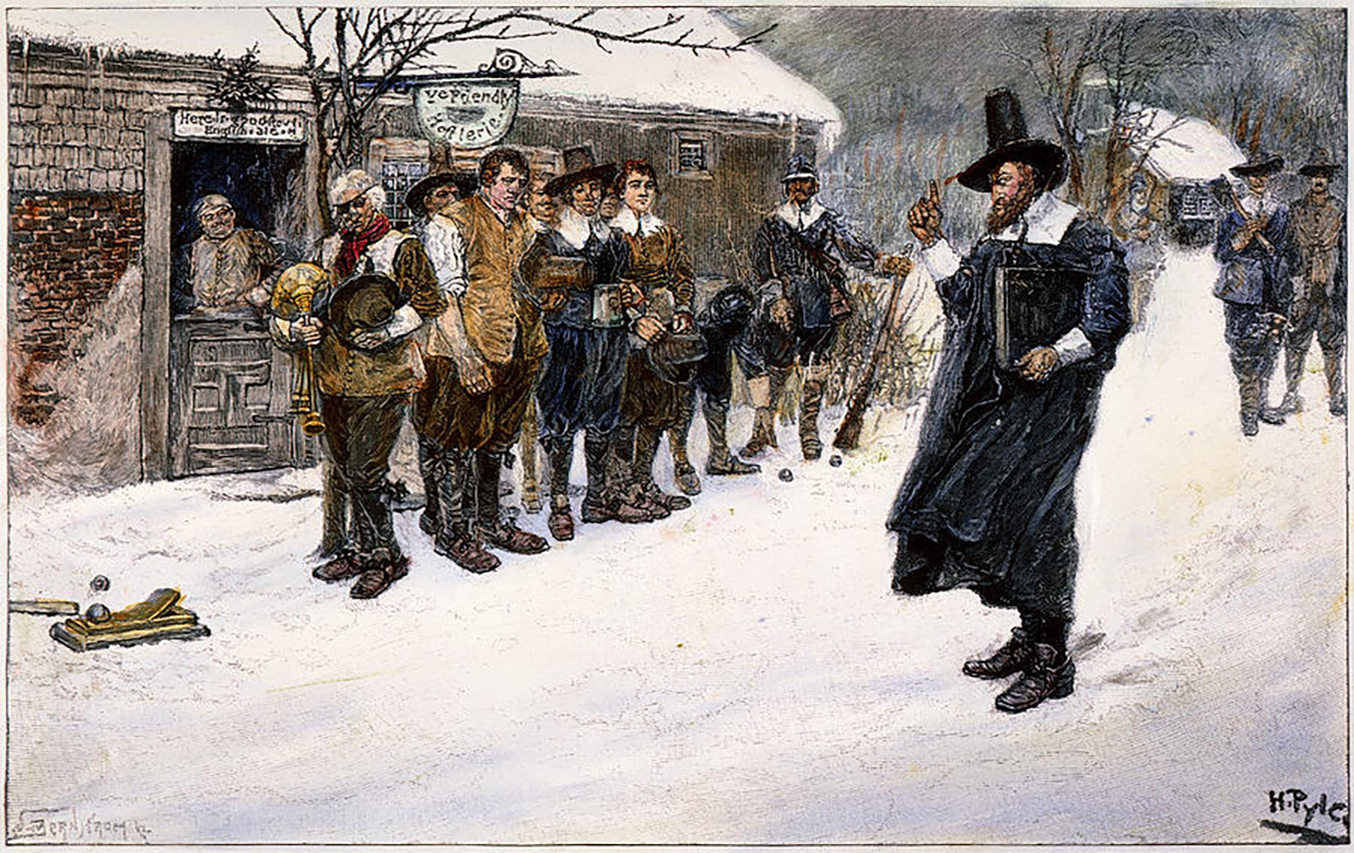5 Surprising Historical Facts About Christmas
From early Christians opposing the celebration of Jesus' birth to why 'Xmas' is not a secular attack, here are some intriguing truths about Christmas from a CofC professor of religious studies.

“The Puritan Governor interrupting the Christmas Sports,” by Howard Pyle c. 1883 (Photo Credit: Public Domain)
As contemporary U.S. Christians argue about keeping “Christ” in Christmas, the actual history of the holiday offers some surprises that are sure to provoke conversation at Grandma’s house this season.
“The history suggests that Christmas is like most everything that human cultures produce – it was made by blending, borrowing, retelling and inventing,” says Lenny Lowe, associate professor of religious studies at the College. “It is arguably equal parts ‘Christian’ and not. But, most of all – again, like most everything that human cultures produce – it has always been a time to get together with people that you love – and maybe even people you like – and CELEBRATE!”
Below are five surprising facts about the holiday from Lowe.

Early Christians opposed the celebration of Jesus’ birth!
For the first few centuries of Christianity in the Roman Empire, theologians and leaders like Origen of Alexandria explicitly rejected the celebration of birthdays as a “pagan” practice. Christian martyrs, and especially Jesus, they argued, should only be remembered on the occasion of their death. Christmas, as such, was not just absent from the early Church, but roundly opposed by it!

Emperor Constantine established Christmas to align with Roman Saturnalia!
Emperor Constantine, political and military mastermind and emperor of the (then) newly reunited Roman Empire, established December 25th as the official celebration of the birth of Jesus in the year 326 CE. Despite the centuries of opposition to the idea of celebrating Jesus’ birth from Church leaders, Constantine thought it would be great to see Christians and so-called pagans all engaged in celebration together! The Feast of Saturnalia (Dec. 17-25), which was celebrated around the winter solstice, could now also be an occasion to party for the fast-growing community of Christians in the empire. Origen must still be rolling over in his grave.

Jolly Old … Odin?
Most people know that Santa Claus goes by many names – St. Nick, St. Nicholas, Father Christmas, etc. But, did you know that much of the mythology surrounding the jolly bearded saint may have come from practices and myths related to the Norse god Odin? Traditionally celebrated during Yule (around the winter solstice), Odin was portrayed as a bearded man who rode on an eight-legged horse through the sky, bringing gifts to all!

Puritan “founders” banned Christmas!
In 1647, the Puritan-led English parliament outlawed Christmas! Then, in 1659, the Puritan colonists who established the Massachusetts Bay Colony officially banned the celebration of Christmas and assigned a five-shilling fine to any who violated the ban. Christmas, from the Puritan perspective, was dishonorable to God and served only as an occasion for drunkenness and other sorts of revelry.

Writing “Xmas” is not a secular attack or invention!
While many contemporary Christians get upset when the see the word Xmas instead of Christmas, imagining it as a strategy for secularizing the holiday, this is actually the opposite of true! The X in Xmas is actually the Greek letter chi, and it is the first letter of the Greek word for Christ, Christos. Indeed, the Greek letter X has been used specifically as a Christian symbol since at least the third century.



